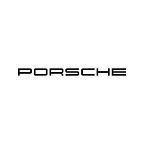Transparency for Body Parts: A Startup Autobahn Collaboration Between Porsche and Circularise
Blockchain solutions are used especially when transparent but secure traceability is required. Randi Bauer and Antoon Versteeg explain how this technology could increase transparency in the automotive industry and share insights about the recent Startup Autobahn collaboration project with Circularise.
How can automobile manufacturers gather more information about the parts and materials they use and provide relevant information to their customers? How can blockchain technology help to increase transparency across the value chain? And how can we make sure our car parts are recycled the right way? These and other questions are the focal points of a collaborative project between Porsche and Circularise.
As part of the Startup Autobahn innovation program, we joined forces with the Dutch startup Circularise as well as material suppliers Borealis, Covestro and Domo Chemicals to work on a blockchain traceability project. Circularise is a blockchain supply chain transparency provider that specializes in accelerating the transition to a circular economy, a paradigm that has gained momentum in recent years. It aims to increase resource efficiency and closing material cycles. The goal of our joint project was to make the origin of parts and materials in Porsche cars traceable while using an innovative approach.
What’s the challenge?
In today’s world, it is not enough for automotive manufacturers to just understand where materials come from. They also have to know what they are made of, where their products will end up and how they might impact the environment over time. It is a question both of designing more with less (i.e. getting maximum value from materials through remanufacturing and recycling) and of achieving greater sustainability across the value chain. In fact, getting detailed information about the sustainability aspects of materials that go into cars is an important step to not only deeper product analytics, but also to create a sustainable value chain and to become better environmental stewards.
However, this is extremely difficult, as the available data on the sustainability of materials is often proprietary, not accessible or incomplete due to the complex and fragmented nature of automotive supply chains, which involve many independent stakeholders and suppliers.
Our approach: the blockchain traceability project
Why blockchain? Many actors in the value chain are hesitant to share sensitive data because of IP considerations and privacy concerns. Blockchain technology allows supply chain actors to effectively and securely share — and trust — information while maintaining privacy. Crucially, all parties involved know where the data comes from and that it has not been tampered with. Ultimately, this leads to better traceability and greater transparency in the value chain.
Our idea was to think big and start small. So, to keep things simple, we started with one use case: the traceability of plastics. Using Circularise’s API and a Porsche demo app, we wanted to give consumers better insights into the parts of their vehicle that contain plastics, including origins, material composition and environmental impact. In our project, we digitized the materials on the blockchain and made a digital copy called digital twin, thereby creating a digital thread through the entire supply chain.
Collaborating with multiple partners
Collaboration was very important for driving the project. Circularise provided access to its API and documentation as well as customization of the API where necessary. Their team also supported us with UX design. Our job at Porsche was the development of a demo app and a bespoke consumer interface as well as the integration of Circularise’s API into our app. Furthermore, we ran bi-weekly calls with representatives of plastic suppliers and tier1 suppliers, discussing how our blockchain approach might be beneficial for all involved. So, despite coronavirus restrictions, we managed to collaborate extensively with our partners.
The result, our new demo app, allows users to trace a number of specific plastics from raw material production to the final car. Using a single platform, they can get insight on e.g. the percentage of recycled material, water savings or the CO2 footprint of different parts of their vehicle.
The future of the automotive supply chain
As part of the Startup Autobahn Expo Day, we shared the story and results of our project, explaining why we have been following this novel approach. We also organized a panel discussion where we explored blockchain’s potential for automotive supply chains, and in particular how it can help reduce the environmental impact of automotive manufacturing.
We are really happy with what we have been able to achieve together in this exciting collaborative project. Pilot projects and collaborations like this help to evaluate the potential of new technologies and accelerate innovative and sustainable solutions while always having the needs of our customers in mind.
Randi Bauer works as IT Lead Sustainability at Porsche AG
Antoon Versteeg works as a Innovation Manager at Porsche AG
About this publication: Where innovation meets tradition. There’s more to Porsche than sports cars — we’re tackling new challenges, develop digital products and think digital with a focus on the customer. On our Medium blog, we tell these stories. It’s about our #nextvisions, smart technologies and the people that drive our digital journey. Please follow us on Twitter (Porsche Digital, Next Visions), Instagram (Porsche Digital, Next Visions, Porsche Newsroom) and LinkedIn (Porsche AG, Porsche Digital) for more.
